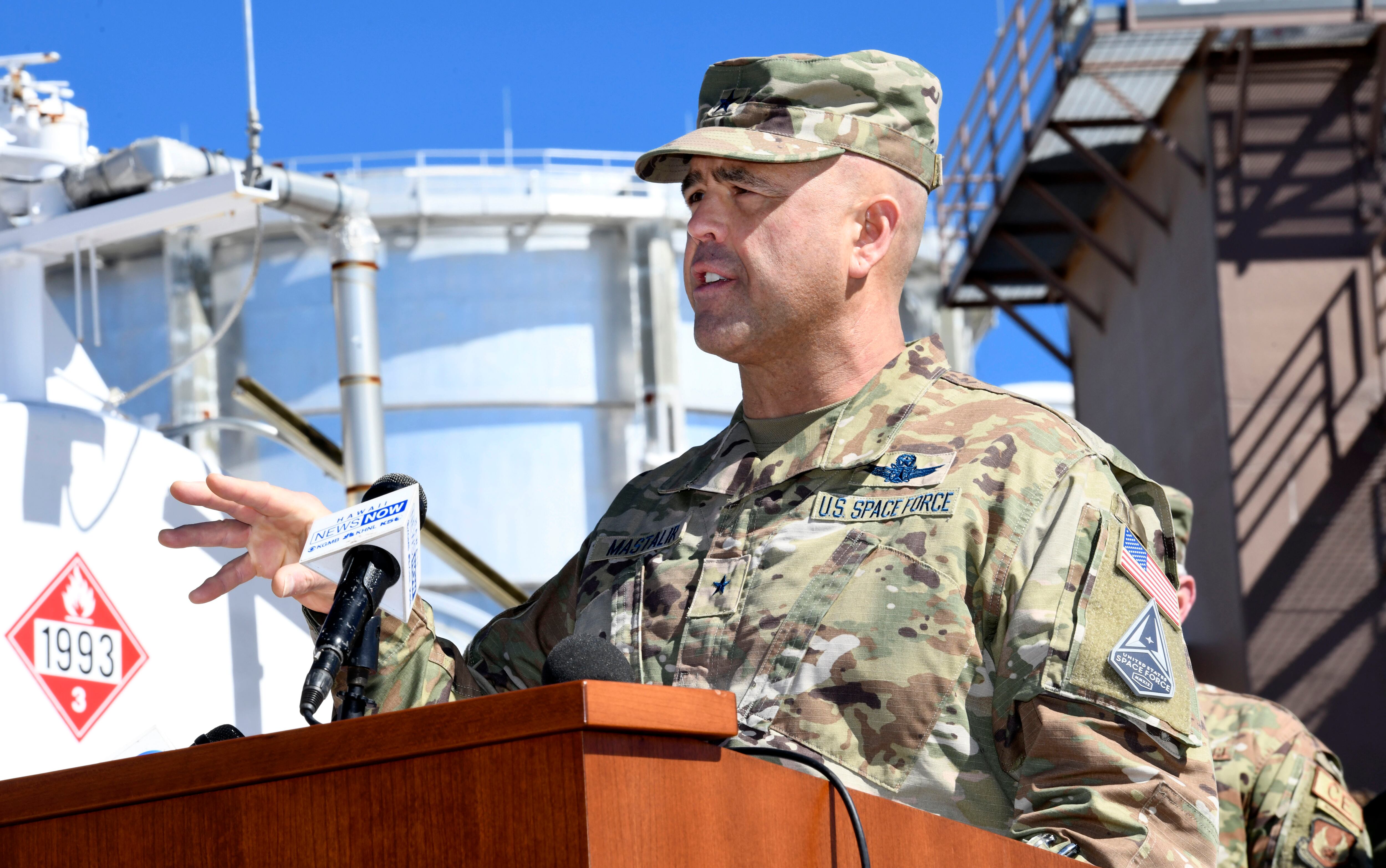Editor’s note: This story has been updated with additional information about the space surveillance complex.
WAILUKU, Hawaii — The Space Force said a power surge during a lightning storm likely caused a mechanical issue that allowed about 700 gallons (2,750 liters) of diesel fuel to spill last week at the environmentally sensitive and culturally important summit of Haleakala mountain on Hawaii’s Maui Island.
Brig. Gen. Anthony Mastalir, the commander of the U.S. Space Forces Indo-Pacific, said a team will take measurements to better understand the severity of the contamination. Mastalir said it’s impossible to know right now how far the diesel fuel seeped into the ground.
The spill occurred at the Maui Space Surveillance Complex at the summit of Hakeakala volcano, rising 10,023 feet (3,055 meters) above sea level. The site hosts hosts the military’s largest optical telescope, which tracks satellites.
A pump that supplies fuel to a backup generator from a storage tank failed to shut off during a lightning storm on Jan. 29, Mastalir said at a news conference Monday, The Maui News reported. An alarm should have gone off to notify officials of a potential fuel overflow, but didn’t.

The generator is still being used, but the transfer pump is being operated manually, Mastalir said.
A remediation team will initially clean 200 cubic yards (153 cubic meters) around the generator, which would be to a depth of about 6 feet (1.83 meters). The team will decide what to do next after taking measurements to better understand the level of contamination, Malastir said.
“However, industry standard remediation processes and protocols are not sufficient for this sacred ground,” Malastir said. “We have to go above and beyond what would otherwise be deemed acceptable, and that is what we are going to do.”
On Monday, the spill site was surrounded by sheets of black tarp held down by wooden pallets and concrete blocks.
This is the latest U.S. military fuel spill in Hawaii that has upset many on the islands. In 2021, the Navy spilled thousands of gallons of jet fuel into a drinking water well, sickening thousands of people in and around Pearl Harbor. Honolulu’s water utility is concerned that spill from the Navy’s Red Hill Bulk Fuel Storage Facility may contaminate another drinking water well that supplies water to 400,000 people in the city.
The Air Force’s lease for land at Haleakala’s summit expires in 2031. Some Native Hawaiian groups have called for the state not to renew this lease. When asked to respond to that, Mastalir said: “We are going to continue to work to rebuild the trust with all Hawaiians, with these Native Hawaiians and their organizations, so that we, given the privilege to operate here, will do so safely and respectfully.”
Ki’ope Raymond, president of Kilakila ‘O Haleakala, said his organization has disagreed in the past that the military should even be on the mountain, but while they are there, they have to increase their vigilance.
“People have pointed to Red Hill and the other types of spills that have occurred recently, and for this to continue to happen, and to happen in a sacred space, is really difficult, it’s just so difficult to take,” Raymond said.
The mountain’s summit is part of Haleakala National Park, but the space surveillance complex is part of Haleakala High Altitude Observatory and not the park. Red soil and lava rocks dominate the high-altitude landscape, which is also home to endangered and threatened species like the nene, the Hawaiian goose and the Hawaiian petrel.




